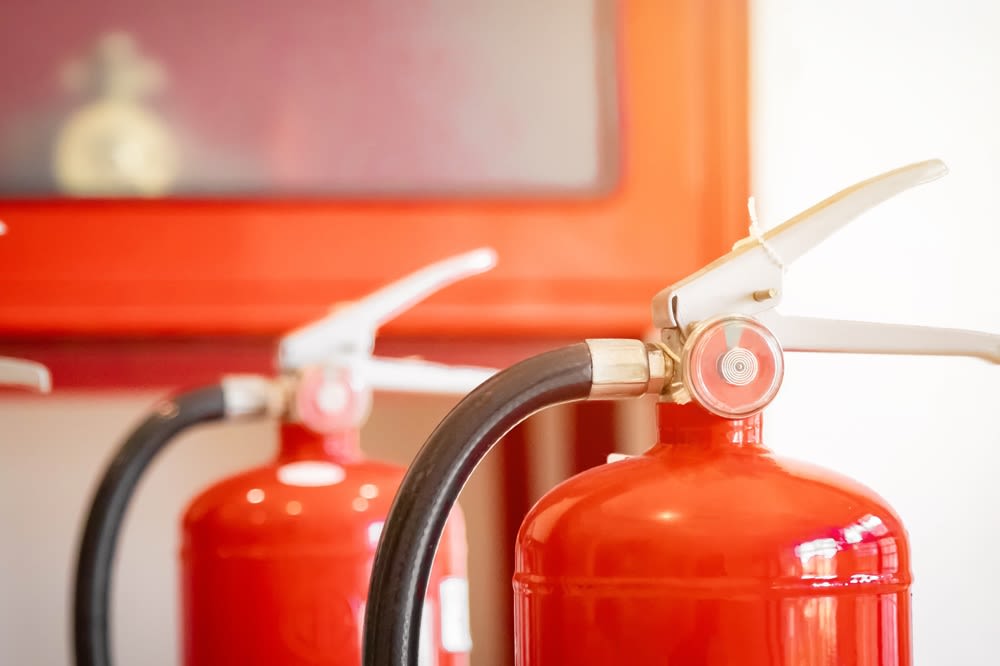
Fires can be highly destructive and deadly. They also build. A small uncontrolled fire that could be handled safely if dealt with in a timely manner can spiral out of control if even just a few minutes are wasted. Below is an explanation of why fire prevention is so important in the workplace and some advice on how to stay ready.
The Importance of Fire Prevention
Many books have been written on the topic of fire prevention. These are some of the main reasons it's important:
1. Prevention Is King
Even a fast and appropriate reaction to an uncontrolled fire will still often leave some level of damage or even injury. It’s safer (and generally cheaper) to just make sure that fire never occurs in the first place. By designing a workplace that makes fires less likely, and where fires will struggle to spread if they occur, you sharply reduce your chance of a major incident.
In simple terms, preventing emergencies is usually easier than handling them when they arrive. Even if you can’t eliminate the risk of an uncontrolled fire (as is the case in locations that need heat and flame for their operations, like a kitchen), you can almost always reduce the risk of a seriousuncontrolled fire. Read up on fire safety, identify what could go wrong in your workplace, and adjust your workplace to better prevent as many potential problems as possible.
2. Complacency Is Dangerous
In basically any business that is competently run, emergencies are often exceedingly rare. Unfortunately, this can lead to complacency.
It’s easy, whether you are consciously thinking it or not, to start believing an emergency can’toccur. This can have a cascading effect, where a workplace slowly becomes less safe because workers start to take drills and regulations that may have once been used effectively less seriously.
The good news is that keeping aware of the risks of complacency almost inherently helps reduce it. By making sure your standards don’t slip and that people are listening when fire safety is being discussed and drilled, you can help make sure a workplace stays safe.
3. The Wrong Reaction Can Cause or Worsen Fires
Throwing water on a grease or electrical fire can have deadly consequences. It’s also one of the first reactions someone who isn’t familiar with fire safety is likely to have when they encounter a fire emergency.
Many people also don’t realize that not all fire extinguishers can be used on all types of fires. They have particular ratings that indicate how they can and cannot be used.
By taking fire prevention seriously, you help workers understand the basics of fire safety. They will know what to do if they see smoke, how to safely put out small fires or escape larger ones, and more. Never assume any part of fire prevention is intuitive or “common sense.” You may think that, but if oneperson reacts the wrong way, it can worsen an emergency.
4. Drilling Reduces Panic
Any type of fire emergency, even if the fire is small, can come as a sudden shock to those involved. Employees fall into routines and become comfortable in those routines. A fire is often a scary and sudden break in that routine that can cause people to freeze or panic, both of which are dangerous during an emergency.
With enough repetition, you can help prepare workers for an emergency, so they can quickly and efficiently react appropriately. This connects with the previous two points—drills help employees know what an appropriate reaction to a fire emergency looks like and prevent them from becoming complacent.
5. Ill-Preparedness Can Leave You Liable
Typically, the law takes fire safety very seriously. While the applicable rules and regulations to a given workplace will vary depending on their industry and the specifics of a site, it’s usually on the owner of a business to make sure a workplace is reasonably fire safe and that the employees know how to react appropriately in the event of a fire, so they and anyone else on site have the highest chance of staying safe.
A business should set a high standard when it comes to workplace safety, especially in areas that may be hazardous, such as kitchens and construction sites. You should at least understand the rules and regulations that apply to your company, but that should only be viewed as the bare minimum. Whatever the law says, a business should consider itself responsible for preparing employees for any emergency that has a meaningful chance (even if that chance is still relatively small) of occurring on the job.
Alsco Uniforms Health & Safety Equipment
In many workplaces, the risk of a fire emergency is low. However, it’s almost neverzero. Almost every workplace has wires with electricity flowing through them and materials of various levels of flammability near enough to those wires that a fire could occur in the event of a serious electrical issue.
Whatever the case, taking fire prevention seriously can make sure any serious fire risks (like faulty or damaged electrical devices) can be dealt with quickly. This can reduce the risk of a fire doing serious damage to a business or even resulting in a loss of human life.
Our team at Alsco Uniforms can help equip your staff with whatever your business needs in terms of health and safety equipment, including first aid kits, PPE, and more. We encourage you to read about the services we offer. If you’re interested in learning more, contact our team with any specific questions you have about how we can meet your company’s needs.
